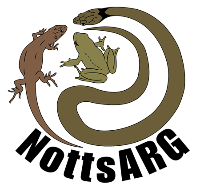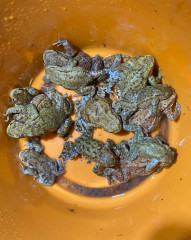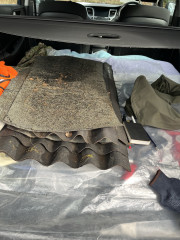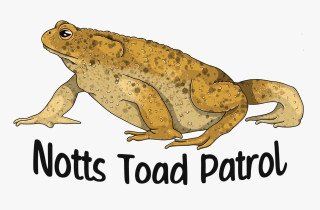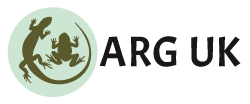About us
About Us
Nottinghamshire Amphibian & Reptile Group (NARG) aims to further the knowledge of frogs, toads, newts, lizards and snakes in Nottinghamshire. The group actively supports the conservation of these often secretive and misunderstood creatures, as well as supporting members with training, field trips and surveys.
The main aim of the group is to generate amphibian and reptile records to aid the conservation of these species within the county. We achieve this through surveys which are run throughout the year, as well as workshops (e.g. on animal identification) and other events and projects our members can join in with.
Nottinghamshire is home to five species of amphibian, the Common Frog, Common Toad, Smooth Newt, Palmate Newt and Great Crested Newt, as well as 3 species of reptile, the Grass Snake, Slow-worm and Common Lizard (all of which are harmless).
If you do see one of these species please record your sightings on Record Pool - this can be done through our website under the 'Record a sighting' tab.
Want to help? Have a look at the 'How you can help' tab at the top of the page to find out more.
For enquiries we can also be contacted at:
See previous newsletters here:
If you'd like to support our work, we'd greatly appreciate a donation equivalent to the cost of a coffee!
https://ko-fi.com/nottsarg
Please check out our Teemil store for our collection of NARG & Toad patrol merchandise!
https://nottinghamshire-arg.teemill.com/
Members link to the ARGweb: https://www.surrey-arg.org.uk/SARGWEB.php?app=MemberMenu
News
News
Amphibian training 20th April 2024
We ran our first amphibian survey of 2024 on the 20th April. We had an amazing evening where we discussed the history and use of the site where the training was held, and the different species of amphibians found in Nottinghamshire. We also talked about how important it is to clean our boots and practice biosecurity measures to ensure amphibian safety – boots were cleaned before and after the event.
The location we chose for the training was just perfect to showcase all four of Nottinghamshire's amphibian species, including the Common toad, Common frog, Smooth newt, and Great crested newt. We were able to find three species in just 30 minutes of the survey!
As part of the event, we organised a hand netting activity, which allowed the attendees to get an up-close look at various species. We also facilitated a hands-on survey of Smooth newts and Great crested newts, while keeping a close eye on the handling process to ensure the safety of both the newts and the participants.
Overall, it was a fantastic evening, and we received a lot of positive feedback from the attendees. One lady even expressed her delight in the newts' toes!
Thank you to everyone who attended!
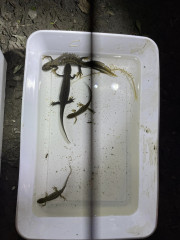
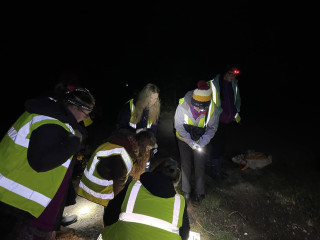
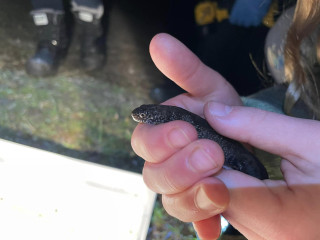
2024 Toad patrols
In the 2024 amphibian migratory season, we built on the Toad Patrol project that was first started by Notts ARG in 2023. In 2023, there were approximately 15 toad patrollers that saved 600 toads across a handful of sites in Nottinghamshire. This year we signed up to collaborate with Froglife on their “Toads on Roads” scheme and worked really hard to promote the project (with dedicated Facebook and Whatsapp groups and articles written about us by Notts Wildlife Trust, Notts BAG and the Nottingham Post). The project has gone from strength to strength, and we now have 52 registered toad patrollers that have saved amphibians from road mortality at 17 sites across Nottinghamshire.
Our results for 2024 are as follows:
|
Species |
Helped |
Deceased |
|
Common Toad |
1780 |
360 |
|
Common Frog |
41 |
4 |
|
Great Crested Newt |
80 |
1 |
|
Smooth Newt |
13 |
17 |
We are thrilled to have saved so many amphibians from road mortality this year. Although it is devastating to also have to report on so many deceased amphibians, these figures will be useful to allow us to target our efforts in the correct areas next year.
As part of the toad patrol project, we have given training to toad patrollers (both in-person at toad crossings and as a webinar). Training has focused on amphibian ID, how to safely patrol and the importance of biosecurity in preventing the spread of amphibian diseases and non-native species. We also recently built on the success of the toad patrols with a non-members meeting, where patrollers (and other people interested in getting involved with Notts ARG) were invited for an evening of talks about the exciting work that we can do and the ways that they can get involved. Off the back of the meeting, we have had several new members sign up as Notts ARG members, and we recently took many of these new members on an amphibian training survey where they got the chance to see, ID and handle Common Frogs, Great Crested Newts and Smooth Newts (without the stress of a road!).
If you are interested in learning more about toad patrols or getting involved yourself, please contact our Toad Patrol Coordinator Kay at nottsargtoadpatrols@hotmail.com
Amphibian Watch
I am sure everyone is getting tired of all this rain and feeling rather depressed by it all.
However, every cloud can have a silver lining.
Cloudy skies at this time of year tend to lead to milder nights, which with a bit of rain can lead to ideal conditions to see amphibians starting to return to ponds and other water bodies to breed.
Luckily I managed to build 2 small wildlife ponds in my garden about 4 years ago, and over time they have been populated by Smooth Newts and the odd Common Frog.
I can honestly say, it's something every avid wildlife conservationist/enthusiast should have in their garden.
On mild nights I usually go out in the garden with a good torch to see if there are any movements, and January is usually the month the Smooth Newts return to my ponds.
Tonight I have seen 5 Smooth Newts,3 male,2 female (last year my maximum count was 26 in April/May)
Other amphibians as well as newts can also be seen on mild nights in January, so keep your eyes out, and watch your steps in the dark as amphibians can travel quite a distance to return back to a breeding pond, which may mean crossing roads(Toad patrols coming soon) pavements or the garden path and lawn.
Keep those eyes peeled.
Some phone images from tonight's 'Amphibian garden watch'
Kevin .NottsARG Chair
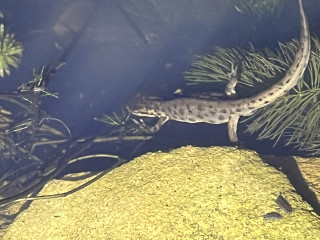
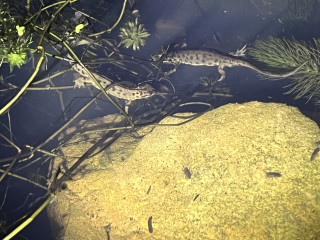
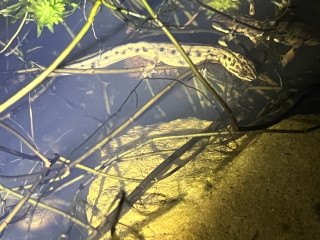
Chair Message
First of all, I would like to thank everyone who has been involved in some way with Nottinghamshire ARG this year. Whether it has been through surveying, committee work, spreading the word, donations through membership etc or by some other means that I am failing to mention, thank you.
I also would like to thank the Forestry England team(especially Amy Chandler) , the National Trust Team and the Newstead & Annesley CP team who have been extremely supportive of the group and have done habitat improvements to benefit our native reptile and amphibians.
We are also looking forward to working with other partners in 2024, NottsBAG, Notts City Council and NWT to name just a few.
We have some plans of action for the new year with Toad Patrols being the first focus of the year, but we really need more people involved as more and more areas are opening up to us that will benefit our local herpetofauna.
Volunteer organisations always find it tough to find dedicated people to spare their valuable time and we hope we can find more like minded people in the new year and if you know someone please ask them if they would like to get involved.
We aim to have the AGM sometime in January and we would be looking at an online Microsoft Teams or Zoom meeting, I will be in touch soon when a date is finalised.
For now though, thank you again for your support, and I wish you and your families, a very Merry Christmas.
Kevin
NottsARG Chair
Clipstone Lizard Walk. 6th August 2023
After Saturdays rain, Sunday morning with its sunny intervals was the perfect conditions to walk my local area in Clipstone to see if any Common Lizards were out basking.
The first woodland edges were very productive with 5 adult Common Lizards and 4 juveniles seen.
Common Lizards have started giving birth and this is the perfect time to see them, edge habitat, or in heather, on leaf litter are good places to see them, even roadside verges.
Nottinghamshire is a good county to see Common Lizard, they are present most parks and nature reserves across Nottinghamshire.
I then moved onto to some roadside habitat, which again had Adult and juveniles present, brilliant news for the local Lizard population.
I spent just over 2 hours on my walk and managed approximately 20 plus Common Lizards, with juveniles in the 3 main areas I was checking.
As a bonus I managed to see a couple of baby Toads moving through the heather.
Here's some photo's from the morning.
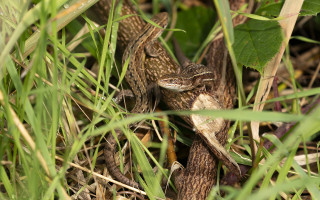
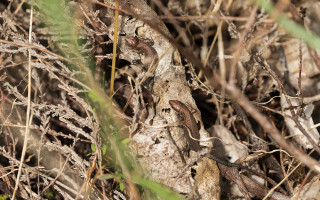
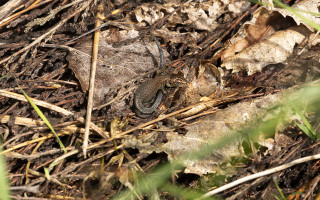
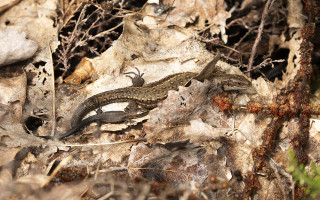
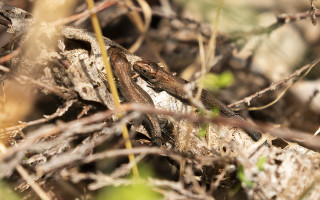
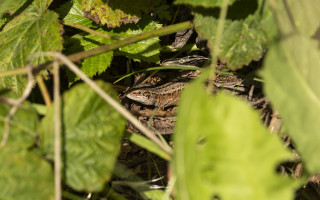
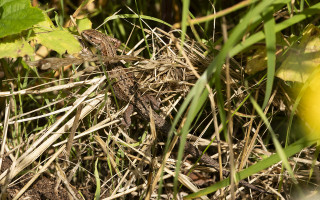
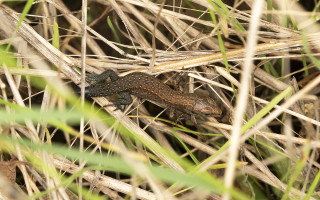
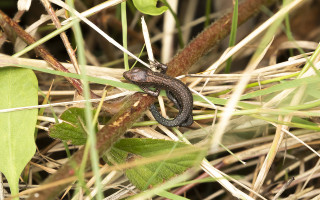
How you can help
How you can help
With amphibians and reptiles in decline globally, conservation efforts targeting these species are becoming more and more vital.
Some of the ways you can help conserve Nottinghamshire's amphibians and reptiles are listed below. All of our events are open to anyone, no matter your level of experience!
Members - events published on social media
-
Setting up survey sites
To better understand the distribution of our herps, we need to be setting up new survey sites (as well as surveying our existing sites!). Members are able to assist with setting up new sites and will learn how we do this most effectively to monitor populations. Sites where we find no amphibians and reptiles are just as important as those that have large populations, as they give us an idea of where management efforts need to be targeted to increase species numbers.
-
Training
Occasionally we offer ID and survey training where you will be taught by some of our enthusiastic committee members. Training events offer opportunities to learn new skills and meet new people! Throughout the year we also have in field training for both amphibians and reptiles where members can learn new ways of surveying, why we survey and how records are beneficial.

-
Reptile surveys
Reptile surveys are carried out regularly and are published on our survey members Whatsapp group. With all of our sites being sensitive we do not publicly publish their locations to prevent unnecessary disturbance. These usually take place in the early morning and consist of visual searches and surveying refugia, providing an opportunity to practice your ID and habitat recognition skills.
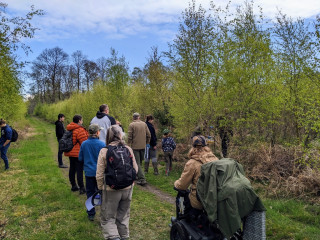
-
Amphibian surveys
Amphibian surveys aren't carried out as regularly as our reptiles survey, but we try to offer them as often as we can. Like our reptile sites, we do not publicly publish their locations to prevent unnecessary disturbance. Amphibian surveys are usually carried on sites that hold all four of our local amphibian species. They are carried out late at night and members can learn ID skills, habitat recognition and survey methods such as torching and egg searching.
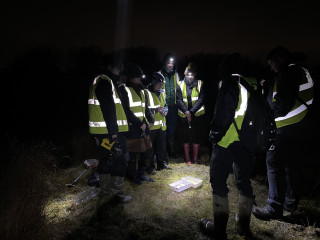
-
Habitat restoration
Although our amphibians and reptiles are resting once the survey season has finished, our members are not! Winter provides the perfect time to clear areas that become inaccessible due to vegetation and many of our sites need clearing annually to ensure they remain suitable for our species. Habitat restoration days consist of cutting down scrub and creating brash piles whilst still allowing areas for reptiles to bask.
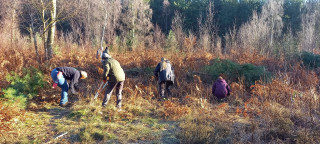
Non-members
-
Toad patrols
As the weather gets warmer in February and March, our amphibians start to migrate to their local ponds. Often this means that they have to cross man made barriers like roads to breed and unfortunately this means there is often a high casualty rate. Volunteers head out during the evenings with a bucket, highvis and torch to save those amphibians from the roads, placing them next to their ponds, we have a few sites across Nottinghamshire, so please get in contact with our Toad Patrol Coordinator at nottsargtoadpatrols@hotmail.com to find your local patrol.
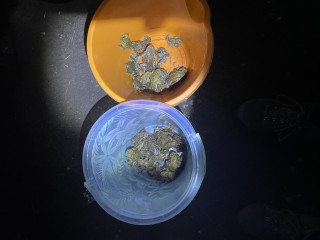
- Event stalls
These events allow NARG to reach a wider audience and educate the public on the importance of amphibians and reptiles and how they can help. These events are usually free to attend and will be published on social media as well as our website.
None of these events require a certain time commitment, so even if you attend one event thats a great help to us! If you do wish to find out more about any of these events, please email us at NottsARG@hotmail.com.
How can we help you?
There may be many ways you can help us, but we can also help you!
-
Have you seen something but don't know what it is?
-
Are toads crossing the road near you, and you want to help them?
-
Do you want us to check a site where you think there may be amphibians or reptiles?
-
Are you worried about snakes in your garden? (Don't be as they will be harmless Grass Snakes or Slow-worms)
Please contact via email if you wish to help us out or if we can help you any way. We may take a few days to respond as we are all volunteers!
Join / Donate
Join / Donate
Membership costs just £5.00 per year. Your membership will help NARG to protect the amphibians & reptile of Nottinghamshire. As a member you be able to take part in conservation events arround the county.
You can help NARG achieve its goals by a simple donation towards our activities. Donations are put towards equipment used for habitat management, survey equipment and materials for public engagement eg fact sheets.
By becoming a member you will be insured for any activities and future benefits. If you wish to join or donate then you can pay through paypal using the buttons or we can accept cash or bank transfers. Contact nargtreasurer03@outlook.com with your details to pay by bank transfer.
Toad patrols
Toad patrols
What are toad patrols?
To survive the colder winter weather, our amphibians enter a state known as brumation. This is a deep sleep which is similar to hibernation (although less permanent as they will wake up to forage during warmer periods). Once the weather is consistently above 5 degrees (usually February onwards), Common Toads will begin to emerge from brumation and make their way towards ponds in order to breed. Unfortunately, many of them will have to cross roads on their way to their breeding ponds which often results in fatalities. Research has shown that on average, Common Toads have declined by 68% in the last 30 years in the UK and road mortality is believed to have played a significant role in this decline. Froglife estimate that 20 tonnes worth of Common Toads are killed on UK roads each year (approximately 500,000 toads). Froglife established their Toads on Roads project in order to combat this. We work with Froglife to coordinate toad patrols across the county of Nottinghamshire.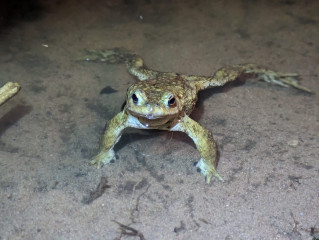
What is involved in a toad patrol?
Toad patrollers walk toad crossings after dark during the migratory period (usually February-April), picking up and moving any Common Toads (and other species of amphibian – though frogs and newts are found less commonly) to safety. At some sites we are able to access the breeding ponds, so can drop the toads off there directly. At sites where breeding ponds are on private land, we drop the amphibians off at a safe location on the side of the road closest to the breeding pond. In order to patrol you would need the following equipment:
- Bucket – to carry amphibians in
- Torch – to light the way
- Hi-vis jacket – to ensure your safety whilst on the road after dark
- Warm, waterproof clothing – as toads move in temperatures above 5 degrees and prefer
wet weather - A method of recording how many amphibians are spotted/helped (both dead and alive as
this is all valuable data) - A mobile phone – in case of emergencies
We would also recommend wearing gloves as amphibians have glandular skin which allows them to absorb the water and salt they require for normal bodily functions. This does mean that they can absorb substances off our skin when handled (such as sweat, soaps, creams, hand sanitisers etc) which can be harmful to them. Gloves should always be latex and powder free as these substances are also harmful to amphibians.
Biosecurity is very important to protect our amphibians from disease spread and we would recommend cleaning boots and patrolling equipment between uses (especially if visiting more than one patrol site). ARG UK recommend using either Virkon (diluted per manufacturers instructions) or a bleach solution (comprised 4% bleach to 96% water) to disinfect equipment that has been in contact with amphibians.
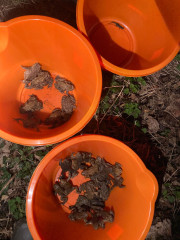
How to get involved?
If you would like to get involved, or find out any more information about toad patrols in Nottinghamshire, please contact our Toad Patrol Coordinator Kay Woodhouse at:
nottsargtoadpatrols@hotmail.com
Where do we patrol?
We manage toad patrols around Nottingham, Mansfield and Newark-on-Trent.
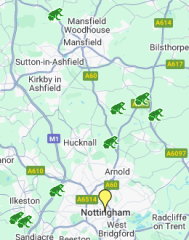
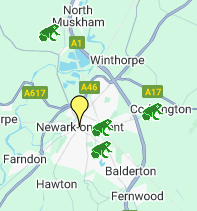
We also support a number of patrols in the county run by other groups/individuals.
Froglife’s “find your nearest toad crossing” tool can be used to identify patrols in your local area.
We are always on the lookout for new toad crossing sites so if you see amphibians crossing the road in locations not included on Froglife’s map (linked above) please do let us know!
2024 Results
We had a hugely successful patrol season in 2024 where we saved the following amphibians from road mortality:
- 1780 Common Toads
- 41 Common Frogs
- 80 Smooth Newts
- 13 Great Crested Newts
We hope to save even more amphibians in the upcoming migratory season!
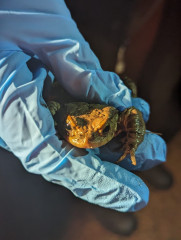
Photo gallery
Photo Gallery
Contact us
Contact Us
If you have any enquiries about amphibians and reptiles in your local area, or Nottinghamshire in general, we would love to hear from you.
Upcoming Events
Upcoming events will be listed here.
Latest News
- Taptole Times! - July 2025
07/07/2025 6:56 pm - Palmate Survey - 21st june
03/07/2025 11:29 am - Notts Toad Patrols 2025 Results!
15/04/2025 8:15 pm - Great Crested Newt Course
09/04/2025 5:11 pm - Online Toad Patrol Training
05/03/2025 8:11 am
© NARG - Nottinghamshire Amphibian and Reptile Group
Website hits: 33140
View All | Find out how to get a mini-website for your ARG
© ARG UK Local Groups mini-websites 2026
Wind powered websites by Aye-aye Design.
